Can a Small Business Get a Tax Refund? Insights and Ways

Small business owners often wonder whether their business is eligible to receive a tax refund. Several factors determine if your company gets a tax refund. The factors include the business entity type, business tax type, and if you’ve paid more than was necessary on your business taxes.
We’ll explore the factors that determine if you can receive a small business tax refund as well as strategies for maximizing your tax refund to help you save money on your income taxes.
Key Takeaways
- Small businesses may be eligible for a tax refund if they have overpaid on business taxes.
- The type of business entity and type of business taxes can influence whether you get a tax refund.
- Only C-corporations file business taxes and may receive a direct business tax refund.
- Deductions, tax credits, and organizing business expenses can maximize tax refunds.
Table of Contents
- Can a Small Business Get a Tax Refund?
- Business Entity Types
- Small Business Tax Rate
- What Business Entity Would Offer the Greatest Tax Benefits?
- Types of Business Taxes
- 8 Ways To Maximize Your Tax Refund
- Conclusion
- Frequently Asked Questions
Can a Small Business Get a Tax Refund?
Yes, you can get an income tax refund as a small business owner. However, the way you receive this refund and the amount will depend on several factors including if your business is a pass-through entity, the type of taxes you’ve paid, and if you’ve paid the IRS or your state more than was necessary. In general, businesses and taxpayers only receive a refund when they’ve overpaid on their estimated tax payments.
There are a few factors to consider:

Business Entity Types
When you first registered your business, you registered it as a specific type of business entity. This entity type is one of the factors that determine whether you’ll be entitled to a potential tax refund.
Most small businesses are registered as ‘pass-through’ entities, meaning that the business income is passed to the business owner and filed on their personal tax return. Since the business itself isn’t filing that income tax, it won’t be eligible for a tax refund. The 4 business entity types that are classified as pass-through entities are:
- Sole Proprietorship: This is a single-owner business structure where business income is filed under personal income taxes on Form 1040, Schedule C.
- Partnership: Partnerships have 2 or more business owners who file the business income through Form 1065 and Form K-1.
- Limited Liability Company (LLC): Income is passed through to the owners and included with other income sources on their personal Form 1040. If total income tax payments exceed the tax due, they may be eligible for a personal tax refund.
- S Corporation: An incorporated business where income is passed through to shareholders. Form K-1 is issued to shareholders to include on their individual tax returns and the business files Form 1120S.
There’s only one type of business entity that might be eligible for a tax refund:
- C Corporation: A C corporation files business tax returns separately from the business owners or shareholders. This means that the corporation pays income tax directly to the IRS. C corporations use Form 1120 to file their taxes. If federal income taxes paid exceed the tax due, a C corporation may be eligible for a business tax refund.
Small Business Tax Rate
The entity structure of a business is one factor that determines the rate at which your small business is taxed. The most straightforward small business tax rate is for C corporations—they pay a federal income tax rate of 21%.
Tax rates are more complicated for pass-through businesses since owners are paying taxes on their total income, not just the profits from their small business. Other income may include job wages, retirement income, personal investment income, and many other taxable income sources.
Personal income taxes pay a progressive tax rate, meaning you’ll pay a different tax rate depending on your tax bracket. Income from sole proprietorships, partnerships, LLCs, and S corporations is included in your total income and helps determine your tax bracket.
What Business Entity Offers the Greatest Tax Benefits?
Determining which business entity offers the greatest tax benefits depends on your personal income tax bracket and other determining factors.
C corporations pay tax at a rate of 21% and the highest personal income tax bracket pays 37%. This may make it seem like the most appealing structure is a C corporation, but there are several influencing factors to consider:
- Pass-Through Deductions: If your company operates as a pass-through business entity, you may be eligible for the pass-through deduction. Many of those pass-through deductions are not available to corporations. One of them is the QBI Deductions.
- Double Taxation: C corporations pay taxes on profits and then shareholders are also taxed when they receive dividends. Although C corporations only pay a 21% tax rate, the shareholders will pay additional taxes on their dividends distribution based on their personal capital gain tax rate.
- Self-Employment Tax: In addition to paying income taxes, business owners of unincorporated entities like sole proprietorships, partnerships, and LLCs also pay self-employment tax. This is the equivalent of employers paying for Social Security and Medicare taxes. If your business is incorporated, the corporation will pay half of the amount as FICA tax and you will be responsible for paying the other half.
Types of Business Taxes
Different businesses also pay different types of business taxes. Understanding the taxes you pay can help you determine whether your small business might be eligible for a tax refund. Some types of business taxes include:
Income Taxes
Only C corporations pay income taxes directly since they’re not a pass-through business. If a C corporation has paid more income taxes than necessary, the corporation will receive a tax refund.
Payroll Taxes
Any business with employees must withhold and pay payroll taxes. If your business has overpaid payroll taxes you may be eligible for a refund, regardless of the type of business entity.
Excise Taxes
Excise taxes are paid on the state level and the rates and amounts differ from state to state. The taxes are levied on most goods and services and are often reported based on the gross income. They are also paid based on the type of business you are in and what type of goods and services you sell. For example, a wholesaler will pay a different rate than a retailer. Some states have additional tax rates for tobacco or timber sales. Excise tax filing can be as complicated as income tax filing, so make sure that you educate yourself or work with a professional.
Self-Employment Taxes
If your business is structured as a sole proprietorship, partnership, or LLC, you’ll pay self-employment taxes on any earnings over $400. As with payroll, if you overpay on these taxes you may be eligible for a refund.
8 Ways To Maximize Your Tax Refund
Here are some effective ways to minimize your tax payment, maximize your tax refund, and not have to overpay in the future:
1. Keep Accurate Records
Keeping clean accounts of all your income and expenses can help you save money and avoid overpaying your taxes. FreshBooks expense tracking software makes it easy to keep track of your expenditures so you can identify which expenses might be eligible for a tax deduction.
Understanding the expense and income tracking also helps you accurately file your taxes so you don’t overpay and lose additional cash flow or underpay and risk owing a large payment while being unprepared for the cash outflow.
2. Look for Tax Credits
Federal and state governments offer a variety of tax credits for small businesses, including Work Opportunity Tax Credits, Research & Development Tax Credits, Electric Vehicle tax Credits, and more. 1
Knowing which tax credits you and your business are eligible for can reduce your total income taxes in turn resulting in lower payments or in a tax refund. A knowledgeable tax advisor can help you find tax credits that are available to your small business.
3. Take Advantage of Depreciation
Some assets like business equipment depreciate over time. As a small business owner, you can deduct the cost of these business assets. Usually, you cannot deduct the cost all at once, however, there are special temporary loopholes that will allow a full or increased percentage of deprecation. Check out the currently available bonus depreciation.
If your business is in the property rental industry, you might consider a cost segregation study to shorten the time to depreciate some of the assets.
4. Contribute to Employee Retirement Plans
If your company has employees or if you’re self-employed, you’re eligible to provide a 401(k) retirement savings plan through your small business. You also have the option to match employee contributions that they make into the 401(k). When an employer contributes to an employee 401(k), those contributions qualify as a deductible business expense on your taxes.
5. Use the Home Office Deduction
Among the many deductions available to small businesses is the home office deduction. If there’s a portion of your home that you use exclusively to conduct business, you may be able to write off the costs associated with that area as a qualified business expense.
Keep in mind that your home office can’t be used for personal reasons—any deductions like rent, phone bills, and internet must be necessary for conducting your business.
6. Review Personal Financial Statements
While it’s important to keep business and personal finances separate, it’s sometimes necessary to pay for a business expense using a personal credit card. Before you file your taxes, review all of your personal banking and credit card statements to check for any business expenses that you may have paid with your personal card.
If you find any business expenses, you can claim them on Schedule C or ask the corporation for reimbursement. The corporation will then be able to claim the payment as its business expense. Even small business expenses can add up to be a meaningful tax deduction.
7. Pre-Pay Future Expenses
If there are any equipment repairs, maintenance, or other expenses coming up in the near future, consider paying for these sooner if you have the available cash and if you believe that your current tax rate will be higher than next year. This can help you save money if prices go up, but it’s also a good way to minimize your total taxable business income for the year and reduce actual tax liability.
8. Track Your Business Mileage
Business mileage can sometimes get mixed into personal transportation costs. If you regularly use your personal vehicle to visit clients or to go to business meetings, you can deduct the mileage as a business expense. Alternatively, if you have a dedicated business vehicle, you can potentially deduct the costs of vehicle repairs, fuel, and interest on your auto loan payments from your business income.
Remember that you can only deduct purely business-related auto costs—using a mileage tracker is a helpful way to separate business and personal mileage and keep track of business-related auto expenses.

Conclusion
Many factors determine a small business’s eligibility for a tax refund including business entity type and types of taxes paid. In general, if your business has paid more than necessary in estimated taxes, you may be eligible for a refund when you file business tax or your personal tax return if you operate a pass-through entity.
One of the best ways to make the most of deductions and ensure tax compliance is with good recordkeeping. Try FreshBooks free to discover how the right accounting software can help you prepare for tax season and make the most of your small business tax refund options. Hiring a knowledgeable tax planner will also often pay for itself in tax savings.
FAQs About Small Business Tax Refund
Learn more about what happens if your business loses money, tax benefits to owning small businesses, and tax refunds for LLCs with these answers to frequently asked questions about small business tax refunds.
Do you get money back in tax if your business has a loss?
You may be able to get a tax refund if your business has a loss. Businesses pay income taxes on profits, so if your pass-through business shows a loss for the tax year, you may be eligible to deduct all or some of the losses from your other income, like your W-2 wages.
What happens if my LLC does not make money?
Even if your LLC does not make a profit, you’re still required to file a tax return. Since an LLC is a pass-through entity, any profits or losses are passed through to your personal income tax return. You’ll have to file a personal tax return regardless of whether your LLC shows a loss or a profit.
Are there tax benefits to owning a small business?
Yes, there are tax benefits that come with being a small business owner. Any business expenses qualify as a tax deduction for small business owners. If your business is a pass-through entity then profits and losses are applied to your personal income taxes. If you’re running a C corporation then you file your business and personal income taxes separately.
Is there a tax credit for starting a new business?
Yes, there is a tax credit for starting a new business. In the first year of starting a new business, the IRS offers a deduction of up to $5,000 for start-up costs and organizational costs. The balance above the amount can be amortized in future years. These various tax deductions and credits can be used to lower your overall taxable income.
Can an LLC get a tax refund?
An LLC cannot receive a tax refund because it doesn’t pay business taxes. An LLC is a pass-through business entity, meaning profits and losses are passed to owners, partners, and shareholders who pay taxes through their personal income taxes. However, if these personal taxes are overpaid, the individual taxpayer may receive a personal income tax refund.
Article Sources:
- U.S Chamber of Commerce, 9 Commonly Overlooked Small Business Tax Credits
Reviewed by
Sandra Habiger is a Chartered Professional Accountant with a Bachelor’s Degree in Business Administration from the University of Washington. Sandra’s areas of focus include advising real estate agents, brokers, and investors. She supports small businesses in growing to their first six figures and beyond. Alongside her accounting practice, Sandra is a Money and Life Coach for women in business.
RELATED ARTICLES


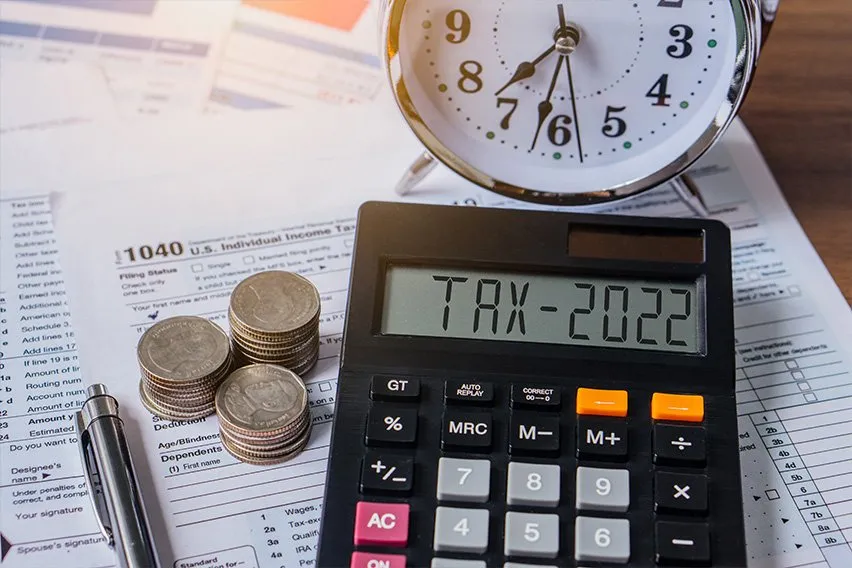 When are Business Taxes Due in 2025?
When are Business Taxes Due in 2025?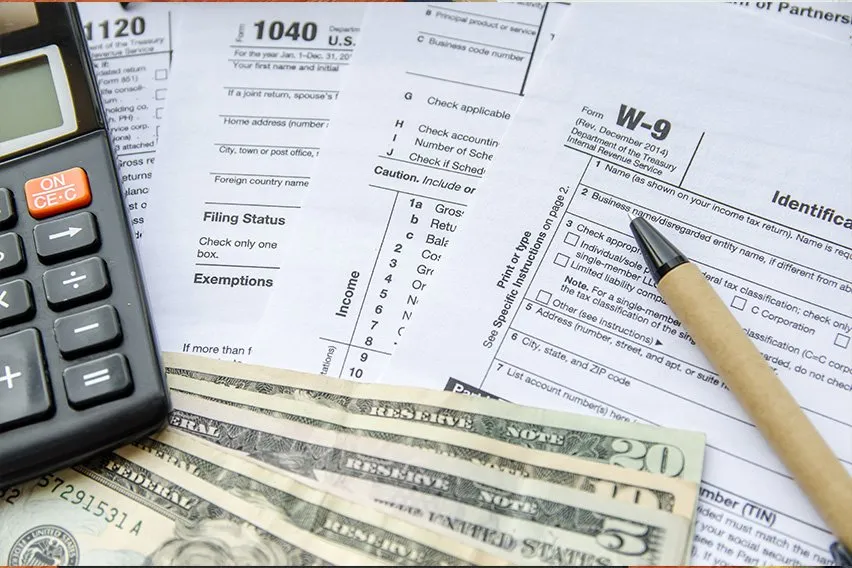 Small Business Income Taxes
Small Business Income Taxes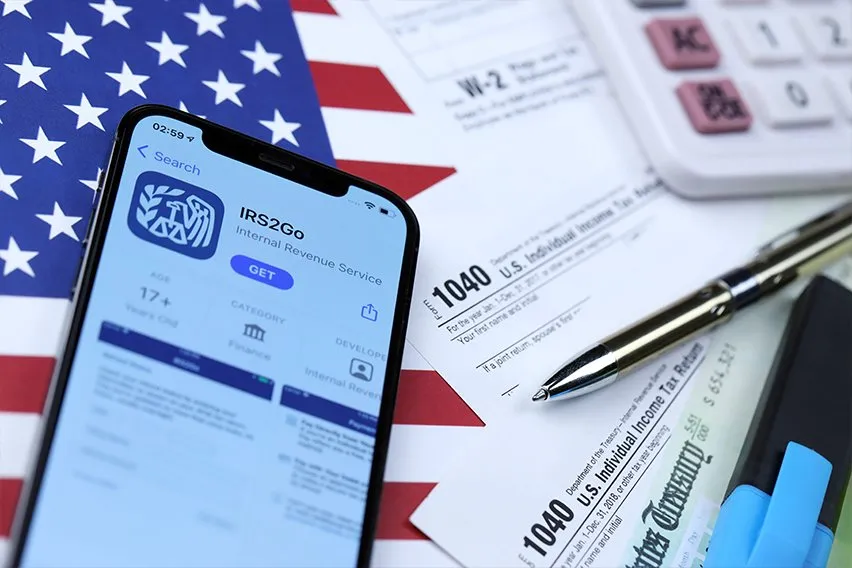 How Far Back Can the IRS Go for Unfiled Taxes?
How Far Back Can the IRS Go for Unfiled Taxes?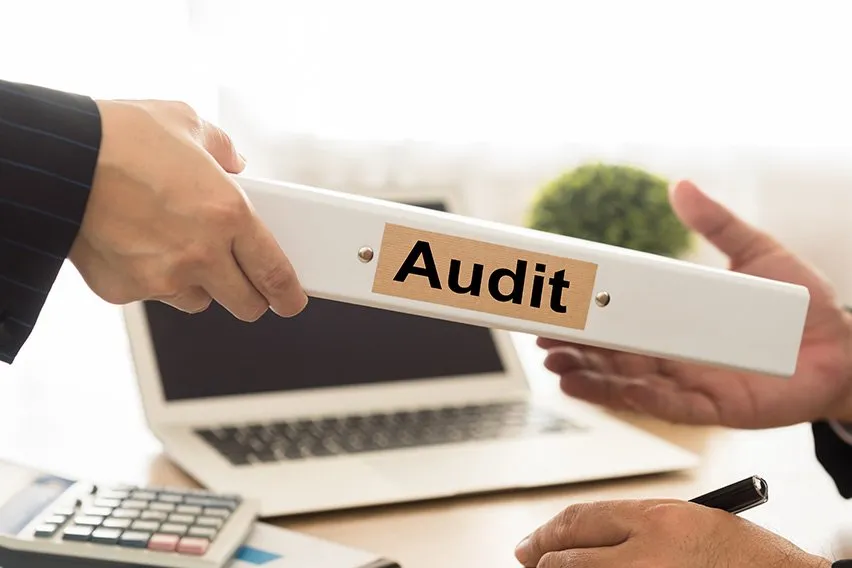 How Many Years Can You Be Audited?
How Many Years Can You Be Audited?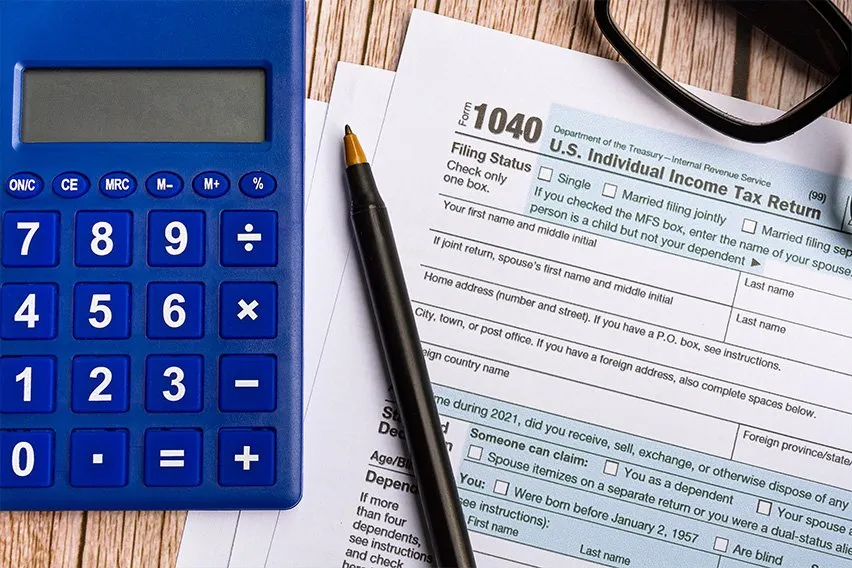 6 Freelance Tax Deductions & Benefits for the Self-Employed
6 Freelance Tax Deductions & Benefits for the Self-Employed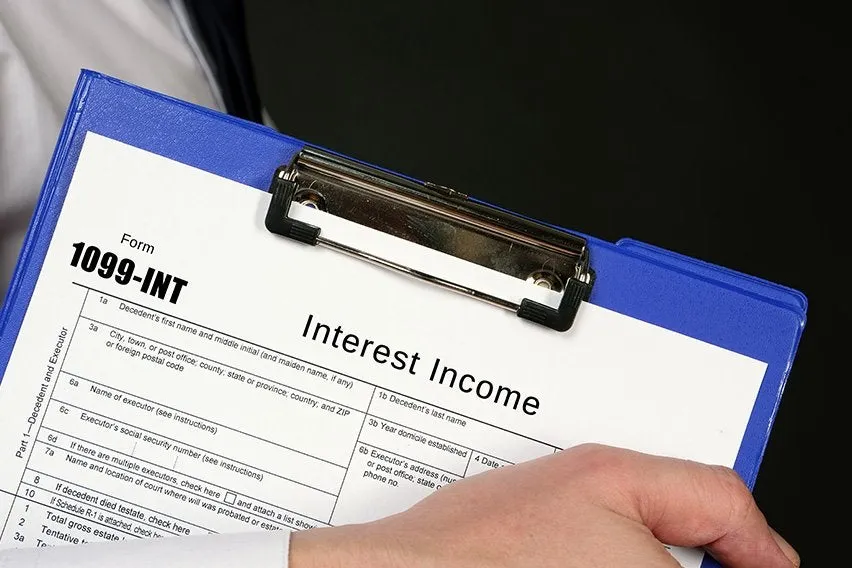 How Is Interest Income Taxed and Reported
How Is Interest Income Taxed and Reported